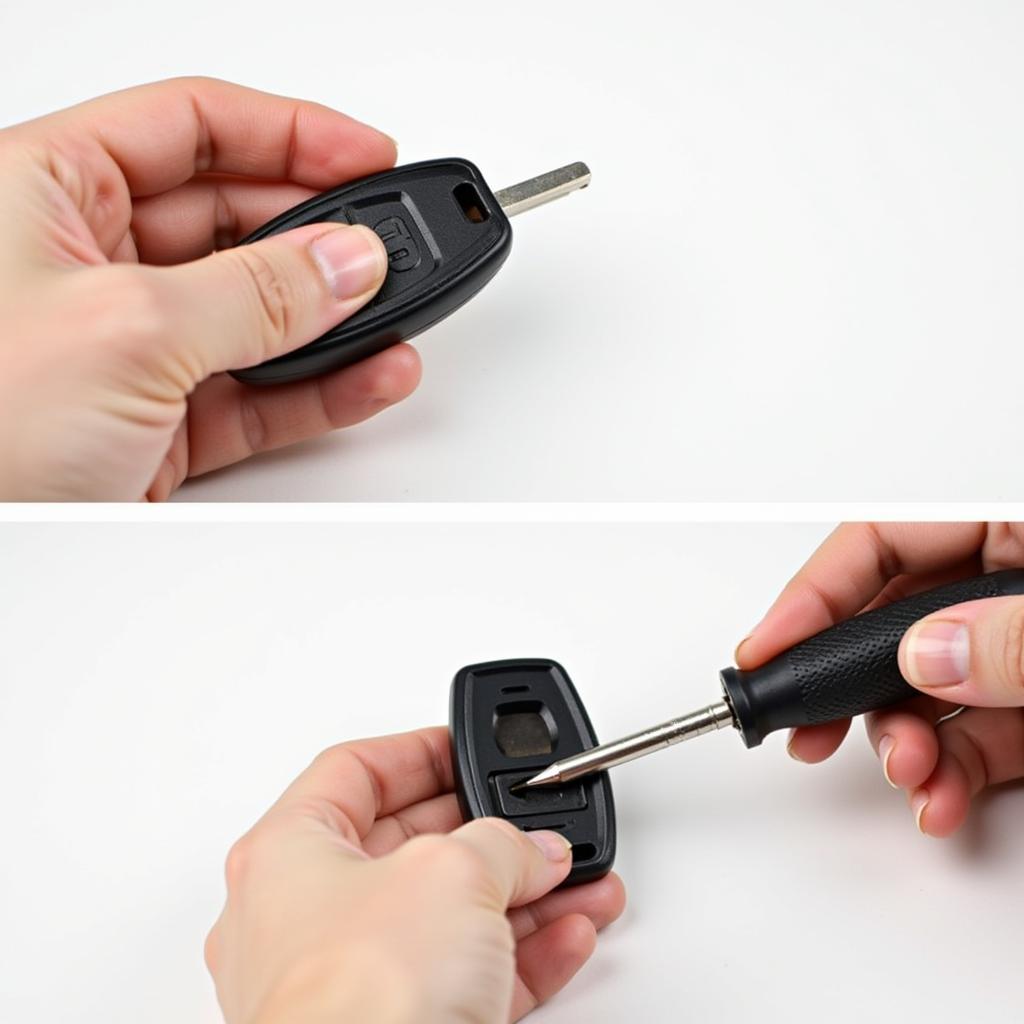A dead car battery can be a frustrating experience, leaving you stranded and immobile. Understanding why your car battery is discharged and how to address the issue can save you time, money, and a whole lot of hassle. Let’s dive into the common causes, troubleshooting steps, and solutions for a discharged car battery. car battery got discharged
Why is My Car Battery Discharged?
Several factors can contribute to a discharged car battery. From leaving your lights on to extreme temperatures, identifying the root cause is crucial for effective troubleshooting.
Common Culprits Behind a Dead Battery
- Parasitic Drain: Even when your car is off, certain electrical components like the radio, interior lights, or faulty wiring can slowly drain the battery. This is often referred to as a “parasitic drain.”
- Lights Left On: Accidentally leaving your headlights, interior lights, or even trunk light on can quickly discharge the battery, especially older ones.
- Extreme Temperatures: Both extreme heat and cold can affect a car battery’s performance. Heat can accelerate the chemical reactions within the battery, leading to faster discharge. Cold temperatures can slow down these reactions, making it harder for the battery to hold a charge.
- Old Age: Car batteries have a limited lifespan, typically ranging from three to five years. As a battery ages, its ability to hold a charge diminishes.
- Faulty Alternator: The alternator is responsible for recharging the battery while the engine is running. A malfunctioning alternator can prevent the battery from being properly recharged, leading to a discharged battery.
- Short Trips: Continuously driving short distances without giving the alternator enough time to fully recharge the battery can also contribute to a discharged state.
- Corroded Terminals: Corrosion on the battery terminals can hinder the flow of electricity, preventing the battery from charging and discharging properly.
Troubleshooting a Discharged Car Battery
Before jumping to conclusions, it’s important to systematically troubleshoot the issue. Here’s a step-by-step guide:
- Check the Obvious: Start by checking if any lights were left on. Look for interior lights, headlights, and even the trunk light.
- Inspect the Battery Terminals: Examine the battery terminals for any signs of corrosion. White, powdery buildup indicates corrosion.
- Test the Battery Voltage: Use a multimeter to test the battery voltage. A fully charged battery should read around 12.6 volts. A reading significantly lower than this indicates a discharged battery.
- Check the Alternator: With the engine running, the battery voltage should increase to around 14 volts. If it doesn’t, the alternator might be faulty.
Solutions for a Discharged Car Battery
Once you’ve identified the cause of the discharged battery, you can take appropriate action.
Jump-Starting the Car
If your car battery is completely dead, jump-starting it is a common solution. dead alternator vs dead battery However, it’s essential to follow the correct procedure to avoid damaging the car’s electrical system. Always connect the jumper cables in the correct order: red to positive, black to negative.
Replacing the Battery
If your battery is old or severely damaged, replacing it is the best solution. reviving old batteries Choose a battery that matches your car’s specifications.
Repairing or Replacing the Alternator
A faulty alternator needs to be repaired or replaced by a qualified mechanic. This is crucial to ensure your battery is properly recharged.
Cleaning the Battery Terminals
If corrosion is present, cleaning the battery terminals with a baking soda and water solution can improve the electrical connection. if car battery dies will it recharge
“A simple battery terminal cleaning can often resolve charging issues,” says John Smith, a certified automotive technician with over 20 years of experience. “It’s a quick and inexpensive fix that many car owners can do themselves.”
Conclusion
Dealing with a discharged car battery can be inconvenient, but understanding the causes, troubleshooting steps, and available solutions can empower you to address the problem effectively. Regular maintenance, including checking the battery terminals for corrosion and ensuring your alternator is functioning properly, can help prevent future discharged battery situations. Don’t let a dead battery leave you stranded – take proactive steps to keep your car running smoothly. If your car battery is discharged, remember to address the underlying issue rather than just jump-starting the vehicle. if my car battery dies will it recharge
“Preventive maintenance is key to avoiding car battery issues,” advises Maria Garcia, an electrical engineer specializing in automotive systems. “Regularly checking your battery and alternator can save you time and money in the long run.”
FAQ
-
How long does a car battery last? Typically, a car battery lasts between three and five years.
-
Can I jump-start my car with a dead battery? Yes, you can jump-start your car using jumper cables and another vehicle with a working battery.
-
What are the signs of a bad alternator? Dimming headlights, flickering interior lights, and a dead battery are common signs of a bad alternator.
-
How can I prevent my car battery from discharging? Make sure to turn off all lights when exiting the vehicle, limit short trips, and regularly check the battery terminals for corrosion.
-
How much does a new car battery cost? The price of a new car battery varies depending on the type and size, but typically ranges from $50 to $200.
-
Can a discharged car battery be recharged? Yes, a discharged car battery can usually be recharged, either by jump-starting the car or using a battery charger.
-
What should I do if my car battery keeps discharging? If your car battery keeps discharging even after being recharged or replaced, there may be a parasitic drain or a problem with the charging system. It’s best to consult a qualified mechanic.

